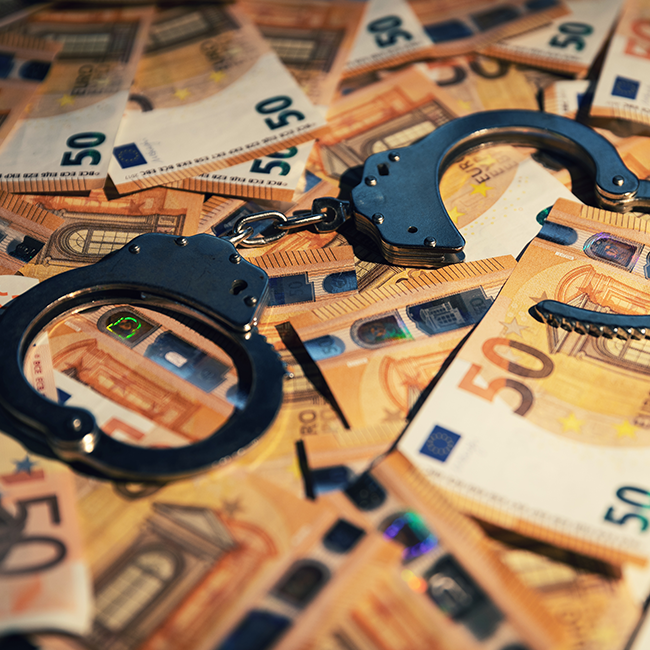Nature and size of Dutch criminal spending
How do criminals spend their money and how much black money is laundered in the Netherlands every year? These questions were central to the research Ecorys conducted in collaboration with Utrecht University and VU University Amsterdam on behalf of the WODC. The aim of the study was to contribute to the debate on the extent to which money laundering has an undermining effect on the regular economy and the financial system in the Netherlands.
Spending of criminally earned income
To answer the question of what criminals spend their money on, the researchers looked at the spending behaviour of criminals and how criminal assets disappear into the regular economy. The researchers found, based partly on interviews with prisoners, that a large part of the income is spent on daily necessities (e.g. groceries at the supermarket) and used as (re)investment in criminal activities. After all, committing crime requires money. . When there is money left over, criminals further like to spend a relatively large part of their money on luxury goods, such as holidays, clothes and jewellery. Criminals who earn really big money may additionally invest in real estate at home and abroad. To facilitate these transactions, they use the services of financial advisers from the upper world to set up corporate and money-laundering structures, which has an undermining effect on society.
Size of criminal spending
To answer the question of how much money is being laundered in the Netherlands, the researchers made an estimate of the size of criminally earned assets. By definition, money laundering cannot be measured; after all, the purpose of money laundering is that it happens unseen. To arrive at an accurate estimate, the researchers used a scientifically based estimation model. The analysis showed that this total domestic money laundering requirement in the Netherlands increased from 10.3 to 13 billion euros per year from 2004 to 2014. That is 2 per cent of gross domestic product over the entire period.
The researchers concluded that this increase in money-laundering needs provides grounds to focus on a more differentiated anti-money laundering policy, distinguishing between different types of crime and spending. A successful Dutch anti-money laundering policy also requires sufficient attention to the international dimension of crime and money laundering. Finally, the same applies to attention to the role played by financial advisors from the upper world in setting up money laundering schemes: a firmer policy towards these advisors is crucial to prevent money laundering undermining.
Also see the research report (in Dutch). For more information, contact Linette de Swart.

7 October 2021
2 minute read
Key Experts
Linette de Swart
Principal Consultant



